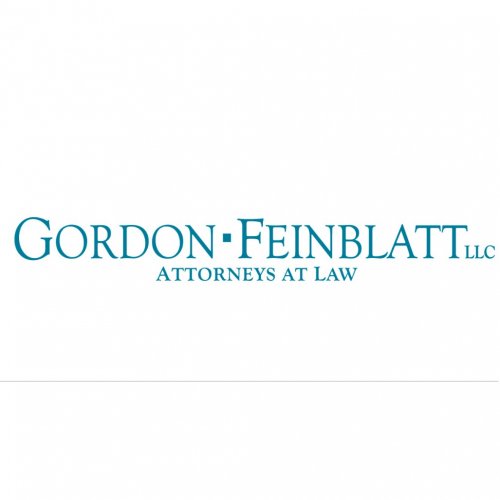Best Business Lawyers in Maryland
Share your needs with us, get contacted by law firms.
Free. Takes 2 min.
Or refine your search by selecting a city:
List of the best lawyers in Maryland, United States
United States Business Legal Questions answered by Lawyers
Browse our 1 legal question about Business in United States and read the lawyer answers, or ask your own questions for free.
- How do I legally protect my idea before selling or licensing it to a company?
- I have a makeup product idea that I want to sell or license, not the product itself. It is influenced by a product that was recently launched. Therefore, I want to sell/license to the company that launched said product. After some research, I contacted a patent attorney who explained that... Read more →
-
Lawyer answer by P.O OHIKHENA & Co
Good day,A patent will not be applicable since it's still an idea. You can go into an MOU(Memorandum of understanding) with the said company and also an NDA.You can contact me for my insight. Visit our profile and send us...
Read full answer
United States Business Legal Articles
Browse our 2 legal articles about Business in United States written by expert lawyers.
- NY 2026 Corp Tax: Thresholds & Franchise
- For tax years beginning on or after January 1, 2026, New York businesses will only be required to make estimated tax payments if their expected New York tax (including any MTA surcharge) is at least $5,000, up from $1,000. Many small and some mid-sized New York corporations and S corporations... Read more →
- Texas AI Compliance 2026 United States Data Privacy Rules
- By 2026, Texas agencies and many businesses that build, host, or support AI tools for government or consumer-facing decisions will face stricter disclosure and anti-discrimination requirements. Texas is pairing its new data privacy framework (Texas Data Privacy and Security Act) with AI-specific rules that target "algorithmic discrimination" in areas like... Read more →
About Business Law in Maryland, United States
Business law in Maryland covers the regulations, statutes, and legal requirements that shape how companies are formed, operated, and dissolved within the state. From large corporations to small local businesses, the field of business law encompasses contracts, employment, compliance, intellectual property, transactions, and dispute resolution. Maryland's laws are shaped by both state statutes and local regulations, as well as applicable federal laws, creating a unique legal environment for entrepreneurs and established companies alike.
Why You May Need a Lawyer
Individuals and companies in Maryland may encounter a range of business-related issues that require legal help. Some of the most common situations include:
- Choosing the right structure for a new business, such as LLC, partnership, or corporation
- Drafting and negotiating contracts with clients, suppliers, or employees
- Ensuring compliance with Maryland employment, tax, and licensing laws
- Resolving business disputes and litigation, including breach of contract or business torts
- Protecting intellectual property such as trademarks, copyrights, or trade secrets
- Buying, selling, or merging businesses
- Navigating local zoning and regulatory requirements
- Handling debt collection matters
- Managing partnership or shareholder disagreements
- Dissolving or restructuring a business entity
Local Laws Overview
Maryland's business laws are governed by state statutes such as the Maryland Corporations and Associations Article, Maryland Commercial Law Article, and various federal business regulations. Here are several key aspects relevant to doing business in Maryland:
- Business Formation: Maryland permits several business structures, including sole proprietorships, partnerships, LLCs, and corporations. Each has distinct setup processes and reporting obligations.
- Licensing and Permits: Most businesses must register with the Maryland Department of Assessments and Taxation and may need local or specialized licenses, depending on the nature of the business.
- Taxes: Businesses are responsible for state corporate taxes, sales and use tax, and employer obligations like withholding and unemployment insurance.
- Employment Law: Maryland has specific rules regarding minimum wage, discrimination, employee rights, and workplace safety that often differ from federal standards.
- Consumer Protection: The state enforces laws designed to protect consumers from unfair or deceptive business practices.
- Contracts: Maryland courts generally uphold written agreements, though specific statutes regulate certain types of transactions and disclosures.
- Local Zoning and Regulation: County and city governments may have additional rules regarding business activities, signage, and property use.
Frequently Asked Questions
What is the process for starting a business in Maryland?
You need to choose a business structure, register your business with the Maryland Department of Assessments and Taxation, obtain any necessary licenses or permits, and comply with state tax and employment regulations.
Do I need to register my business name in Maryland?
Yes, most businesses must register a trade name if they operate under a name other than their own legal name. Registration is done with the Department of Assessments and Taxation.
What business structures are available in Maryland?
Maryland recognizes sole proprietorships, general and limited partnerships, corporations, limited liability companies (LLCs), and more specialized entities such as benefit corporations and professional associations.
What are the tax responsibilities for businesses in Maryland?
Businesses may be subject to state income tax, sales and use tax, personal property tax, and withholding taxes for employees. Registration for appropriate tax accounts is required.
How do I obtain business licenses and permits?
Licensing requirements vary by industry and locality. Check with the Maryland Department of Labor, state agencies overseeing your sector, and local government offices where your business will operate.
What are Maryland's employment law requirements?
Maryland sets rules for minimum wage, leave policies, workplace safety, discrimination, and employee classification. Both federal and state laws may apply, so compliance involves understanding both sets of rules.
Can I operate an out-of-state business in Maryland?
Out-of-state businesses wishing to operate in Maryland must register as a foreign entity with the Department of Assessments and Taxation and comply with all relevant state and local regulations.
How are business disputes resolved in Maryland?
Disputes may be resolved through negotiation, mediation, arbitration, or litigation in Maryland state courts. Many contracts specify preferred methods for dispute resolution.
Are there special regulations for online businesses?
Yes, online businesses must comply with state registration, sales tax collection, data privacy, and federal e-commerce rules, even if there is no physical presence in Maryland.
What should I do if I want to close my business?
You must formally dissolve the entity with the state, settle outstanding debts, pay final taxes, distribute remaining assets, and cancel any permits or licenses.
Additional Resources
Several state and local organizations can provide valuable assistance to business owners and those seeking legal advice. These include:
- Maryland Department of Assessments and Taxation: Handles business entity registration and status
- Maryland Small Business Development Center: Provides business counseling and resources
- Maryland Department of Commerce: Offers business guidance and economic development support
- Maryland State Bar Association: Referral services to qualified business attorneys
- Maryland Attorney General’s Consumer Protection Division: Helps with regulations and complaints about commercial practices
- County and local government business offices: Information on local permits, zoning, and regulations
Next Steps
If you need legal assistance with a business matter in Maryland, consider the following steps:
- Clearly define your issue or goal, such as starting a business, resolving a dispute, or addressing compliance
- Gather any relevant documents, such as contracts, government correspondence, or business records
- Contact a qualified Maryland business attorney for an initial consultation
- Explore local business resources and state agencies for additional guidance and support
- Ensure that you stay current with ongoing obligations such as taxes, licenses, and annual filings
Business law can be complex, but seeking professional legal advice early can help prevent costly mistakes, ensure compliance, and position your business for success in Maryland.
Lawzana helps you find the best lawyers and law firms in Maryland through a curated and pre-screened list of qualified legal professionals. Our platform offers rankings and detailed profiles of attorneys and law firms, allowing you to compare based on practice areas, including Business, experience, and client feedback.
Each profile includes a description of the firm's areas of practice, client reviews, team members and partners, year of establishment, spoken languages, office locations, contact information, social media presence, and any published articles or resources. Most firms on our platform speak English and are experienced in both local and international legal matters.
Get a quote from top-rated law firms in Maryland, United States — quickly, securely, and without unnecessary hassle.
Disclaimer:
The information provided on this page is for general informational purposes only and does not constitute legal advice. While we strive to ensure the accuracy and relevance of the content, legal information may change over time, and interpretations of the law can vary. You should always consult with a qualified legal professional for advice specific to your situation.
We disclaim all liability for actions taken or not taken based on the content of this page. If you believe any information is incorrect or outdated, please contact us, and we will review and update it where appropriate.
Browse business law firms by service in Maryland, United States
Maryland, United States Attorneys in related practice areas.
Browse business law firms by city in Maryland
Refine your search by selecting a city.













